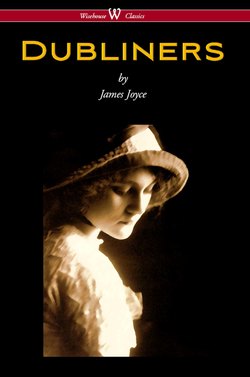Читать книгу Dubliners (Wisehouse Classics Edition) - James Joyce - Страница 12
На сайте Литреса книга снята с продажи.
ОглавлениеIn Jimmy’s house this dinner had been pronounced an occasion. A certain pride mingled with his parents’ trepidation, a certain eagerness, also, to play fast and loose for the names of great foreign cities have at least this virtue. Jimmy, too, looked very well when he was dressed and, as he stood in the hall giving a last equation to the bows of his dress tie, his father may have felt even commercially satisfied at having secured for his son qualities often unpurchaseable. His father, therefore, was unusually friendly with Villona and his manner expressed a real respect for foreign accomplishments; but this subtlety of his host was probably lost upon the Hungarian, who was beginning to have a sharp desire for his dinner.
The dinner was excellent, exquisite. Segouin, Jimmy decided, had a very refined taste. The party was increased by a young Englishman named Routh whom Jimmy had seen with Segouin at Cambridge. The young men supped in a snug room lit by electric candle lamps. They talked volubly and with little reserve. Jimmy, whose imagination was kindling, conceived the lively youth of the Frenchmen twined elegantly upon the firm framework of the Englishman’s manner. A graceful image of his, he thought, and a just one. He admired the dexterity with which their host directed the conversation. The five young men had various tastes and their tongues had been loosened. Villona, with immense respect, began to discover to the mildly surprised Englishman the beauties of the English madrigal, deploring the loss of old instruments. Riviere, not wholly ingenuously, undertook to explain to Jimmy the triumph of the French mechanicians. The resonant voice of the Hungarian was about to prevail in ridicule of the spurious lutes of the romantic painters when Segouin shepherded his party into politics. Here was congenial ground for all. Jimmy, under generous influences, felt the buried zeal of his father wake to life within him: he aroused the torpid Routh at last. The room grew doubly hot and Segouin’s task grew harder each moment: there was even danger of personal spite. The alert host at an opportunity lifted his glass to Humanity and, when the toast had been drunk, he threw open a window significantly.
That night the city wore the mask of a capital. The five young men strolled along Stephen’s Green in a faint cloud of aromatic smoke. They talked loudly and gaily and their cloaks dangled from their shoulders. The people made way for them. At the corner of Grafton Street a short fat man was putting two handsome ladies on a car in charge of another fat man. The car drove off and the short fat man caught sight of the party.
“Andre.”
“It’s Farley!”
A torrent of talk followed. Farley was an American. No one knew very well what the talk was about. Villona and Riviere were the noisiest, but all the men were excited. They got up on a car, squeezing themselves together amid much laughter. They drove by the crowd, blended now into soft colours, to a music of merry bells. They took the train at Westland Row and in a few seconds, as it seemed to Jimmy, they were walking out of Kingstown Station. The ticket-collector saluted Jimmy; he was an old man:
“Fine night, sir!”
